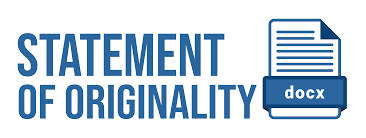Politeness in Making Requests: A Study on EFL Learners’ Communicative Strategies and Attitudes
DOI:
https://doi.org/10.61672/eji.v9i2.3083Keywords:
Politeness strategies, EFL learners, speech act of requesting, communication strategies and attitudesAbstract
This study highlights the importance of politeness strategies in making requests, particularly for learners of English as a Foreign Language (EFL). While numerous studies have examined politeness strategies in teacher-student interactions within EFL classrooms, few have focused on EFL learners’ own perceptions and attitudes toward these strategies in making requests. This study aims to investigate how EFL learners perceive and apply politeness strategies in request speech acts in relation to their communication strategies and pragmatic awareness. Employing a quantitative descriptive design, the study involved nine students from the English Education study program who had completed the Semantics and Pragmatics course. Data were collected using a closed-ended questionnaire based on a Likert scale, developed in reference to Brown and Levinson’s politeness theory. Responses were gathered via Google Forms and analyzed using descriptive statistical methods to determine the frequency and percentage of politeness strategy preferences. The findings indicate that participants predominantly preferred positive politeness, negative politeness, and off-record strategies, while bald on-record strategies were generally avoided due to their perceived impoliteness. The study concludes that EFL learners demonstrate a solid level of pragmatic competence and tend to select politeness strategies that promote respectful and harmonious communication. These findings suggest the need for more explicit instruction on pragmatic aspects of language use in EFL curricula to further enhance learners’ communicative effectiveness.
References
Adhari, S., & Sesmiyanti, Y. (2022). Positive politeness strategies in classroom interaction at EFL class. Journal of Language, Literature, and English Teaching (JULIET), 3(2), 43–55. https://doi.org/10.31629/juliet.v3i2.4172
Adolph, R. (2016). Politeness strategies used by teacher and students in the English foreign language (EFL) classroom. Open Journal Systems, 17(11), 2627–2636. https://binapatria.id/index.php/MBI
Ardianto, S., Anam, S., & Purwati, O. (2023). Politeness strategies employed by lecturers in undergraduates EFL classroom. Linguistic, English Education and Art (LEEA) Journal, 6(2), 233–249. https://doi.org/https://doi.org/10.31539/leea.v6i2.6440
Bahrun, S. R., & Putri, A. M. N. (2021). Variaton of politeness strategies among the English education students at Islamic Institute of Muhammadiyah Sinjai. JLE: Journal of Literate of English Education Study Program, 1(2), 12–21. https://doi.org/10.47435/jle.v1i2.511
Brown, P., & Levinson, S. C. (1987). Politeness: Some universals in language usage. Second Edition. Cambridge: Cambridge University Press.
Creswell, J. W., & Creswell, J. D. (2018). Research design: qualitative, quantitative, and mixed methods approaches. Fifth edition. Sage: Los Angeles, SAGE Publication.
Erlinda, R., & Rahmi, M. M. (2015). Positive politeness strategies in classroom interaction. The 2nd International Seminar on Linguistics (ISOL-2), September, 378–383. https://doi.org/10.31227/osf.io/n69ps
Fathira, V., & Utami, S. (2018). Investigating learners’ understanding on politeness and gender of advertisements in teaching sociolinguistics. J-SHMIC : Journal of English for Academic, 5(2), 112–121. https://doi.org/10.25299/jshmic.2018.vol5(2).1955
Fitriyani, S., & Andriyanti, E. (2020). Teacher and students’ politeness strategies in EFL classroom interactions. IJELTAL (Indonesian Journal of English Language Teaching and Applied Linguistics), 4(2), 259–273. https://doi.org/10.21093/ijeltal.v4i2.473
Gunas, T. (2024). Politeness maxims in teacher’s requests in EFL interaction context: A classroom-based empirical evidence. E-Journal of Linguistics, 18(1), 24–32. https://doi.org/https://doi.org/10.24843/e-jl.2024.v18.i01.p03
Gunas, T., Simpen, I. W., Sudipa, I. N., & Artawa, K. (2023). Pragmatic modifiers in teachers’ polite requests in EFL classroom interaction in Manggarai, Indonesia. Interdisciplinary Journal of Education Research, 5, 24–34. https://doi.org/10.38140/ijer-2023.vol5.03
Jaafar, F. A., & Ageli, N. (2020). The use of politeness strategies in the realization of the speech act of disagreement by EFL learners. International Journal of Linguistics, Literature and Translation (IJLLT), 3(11), 55–67. https://doi.org/10.32996/ijllt.2022.5.11.3
Khusnia, A. N. (2017). Politeness strategies in EFL classroom: An effect on building a positive values towards students. Advances in Social Science, Education and Humanities Research (ASSEHR), 109(Aecon), 32–35. https://doi.org/10.2991/aecon-17.2017.8
Meiratnasari, A., Wijayanto, A., & Suparno, S. (2019). An analysis of politeness strategies in Indonesian English textbooks. ELS Journal on Interdisciplinary Studies in Humanities, 2(4), 529–540. https://doi.org/10.34050/els-jish.v2i4.8393
Nurmawati, N., Haryanto Haryanto, & Weda, S. (2019). An analysis of positive politeness strategies to promote effective interaction in the classroom. ELS Journal on Interdisciplinary Studies on Humanities, 2(2), 171–181. https://doi.org/10.34050/els-jish.v2i2.6340
Oktarina, H., Dewi, S., Imam, K., & Amanda, P. (2020). Request strategies in students’ requestive emails to faculty: A pragmalinguistic analysis on the graduate students’ emails. Journal of English Education and Linguistcs, 1(1), 59–71. https://doi.org/10.56874/jeel.v1i1.49
Rahayuningsih, D., Saleh, M., & Fitriati, S. W. (2020). The realization of politeness strategies in EFL teacher-students classroom interaction. English Education Journal, 10(1), 85–93. https://doi.org/10.15294/eej.v10i1.33822
Rejeki, S., & Azizah, A. N. (2019). Politeness strategies performed by EFL learners’ with English native speakers in medical students. Humaniora, 10(1), 41–46. https://doi.org/10.21512/humaniora.v10i1.5312
Sunra, L., Halim, A., & Nengsi, S. A. (2022). Politeness strategies used by the first semester students in online classroom interaction at Unismuh Makassar. Journal of English Language Teaching Development (Jelted), 1(2), 9–15. https://doi.org/10.51629/cjls.v2i1.85
Widana, I. M., Swandana, I. W., & Wedhanti, N. K. (2018). An analysis of politeness strategies used by teacher and students of X IBB in SMAN 1 Sukasada during English classroom interaction. Journal of Psychology and Instructions, 2(2), 77–83. https://doi.org/10.23887/jpai.v2i2.15980
Wijayanti, W., Wijayanto, A., & Marmanto, S. (2020). Native English teacher’s politeness realizations in EFL classroom interaction. ELS Journal on Interdisciplinary Studies in Humanities, 3(1), 31–40. https://doi.org/10.34050/els-jish.v3i1.9524
Downloads
Published
Issue
Section
License
Copyright (c) 2025 Vina Fathira, Gunaldi Masbiran

This work is licensed under a Creative Commons Attribution 4.0 International License.




















